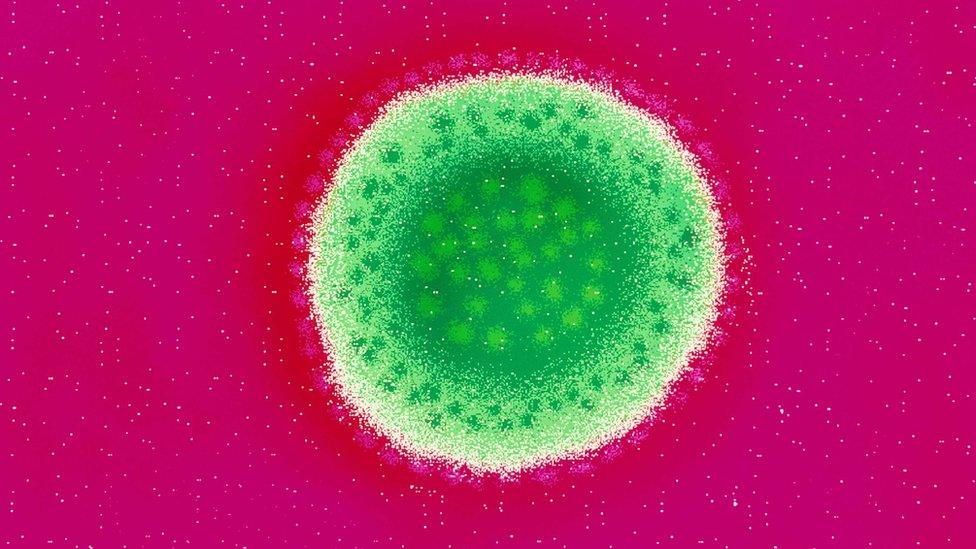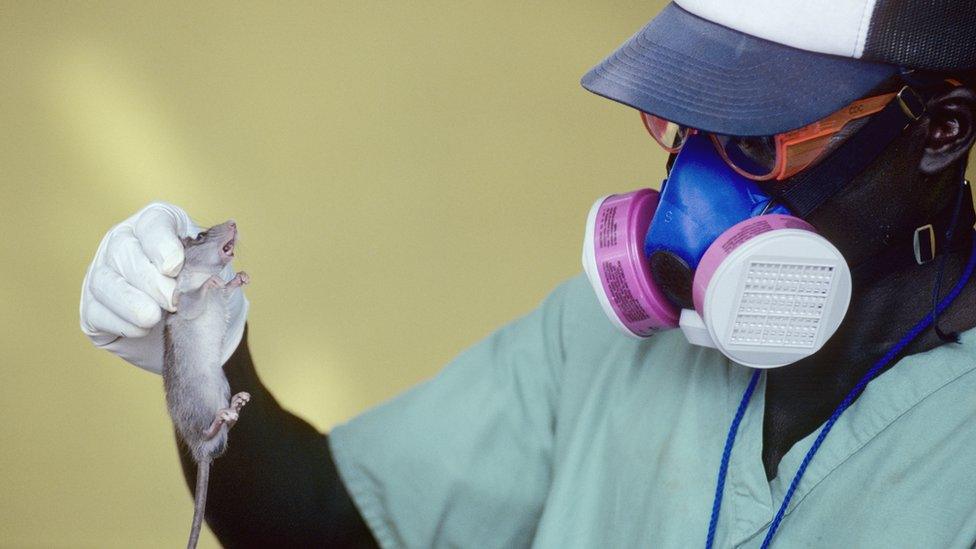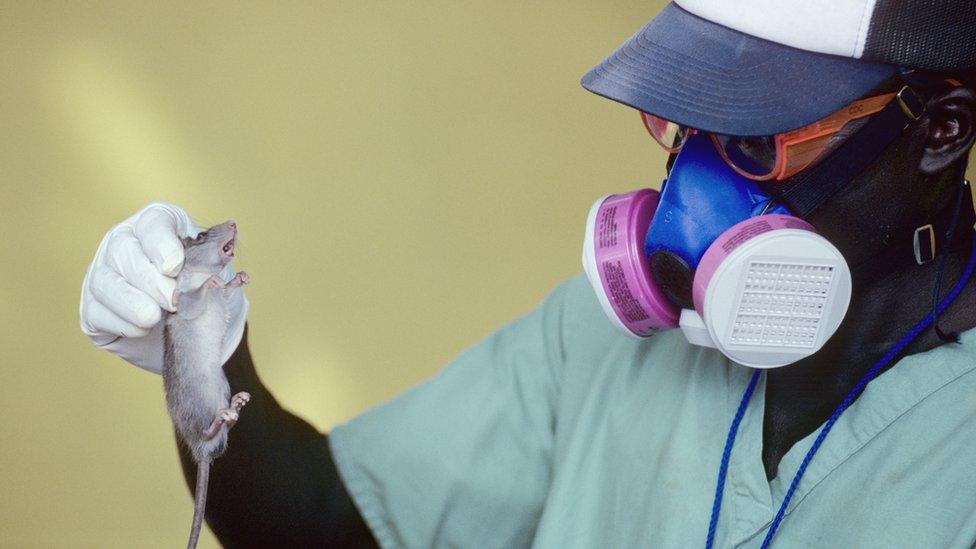Lassa fever fatality was newborn baby
- Published

A cousin of Ebola, Lassa fever is endemic in a number of West African countries
A patient who died from Lassa fever was a newborn baby, the BBC has been told.
The child, who died at the Luton and Dunstable Hospital last week, was one of three confirmed cases of the disease, all within the same family.
Hundreds of staff there, and at Addenbrooke's Hospital, Cambridge, have been identified as potential contacts.
NHS England and the UK Health and Security Agency (UKHSA) would not comment on the death but confirmed contact tracing was under way.
'Precautionary isolation period'
In an email to staff, seen by the BBC, Cambridge University Hospitals NHS Trust, which runs Addenbrooke's, said: "Colleagues identified through our staff contact tracing exercise have been required to undertake a precautionary isolation period of 14 days, and not have patient contact for 21 days.
"As expected, this is impacting on our staffing levels and has required the temporary closure of a substantial portion of our critical care capacity - with impact on our clinical services.
"We want to assure you all that cases of Lassa fever are rare in the UK and it does not spread easily between people. The overall risk to healthcare staff and other patients is very low."
The neo-natal unit at the Luton and Dunstable Hospital has also been closed to new admissions, sources told the BBC.

A health worker in Sierra Leone pictured with a rodent, which can spread the virus to humans by contaminating food or household items
NHS East of England declared a "regional major incident" last week after news emerged of the infections, the first cases of the disease in the UK for more than a decade.
Dr Susan Hopkins, chief medical adviser at UKHSA, had said the cases were linked to recent travel to West Africa, where the animal-borne disease is endemic.
Most people with Lassa fever recover but some can come down with severe illness.
Health Secretary Sajid Javid, on a visit to Clacton, Essex, on Monday, said the situation was "very much under control".
Prior to these new cases, only eight had been identified in the UK since 1980, with the last two occurring in 2009, according to the UKHSA.
Its guidance states infections are usually through exposure to food or household items contaminated with urine or faeces of infected rats.

What is Lassa fever?
Lassa fever, like Ebola, can be spread through contact with the bodily fluids (blood, saliva, urine or semen) of infected people
Humans can also get it by coming into contact with the urine or faeces of infected rodents that carry the disease
The disease typically causes a fever and flu-like symptoms, but it can cause bleeding through the nose, mouth and other parts of the body
Most people will make a full recovery but the illness can be fatal
Described as a cousin of Ebola, the disease is endemic in a number of West African countries

Find BBC News: East of England on Facebook, external, Instagram, external and Twitter, external. If you have a story suggestion email eastofenglandnews@bbc.co.uk, external
Related topics
- Published11 February 2022

- Published10 February 2022
